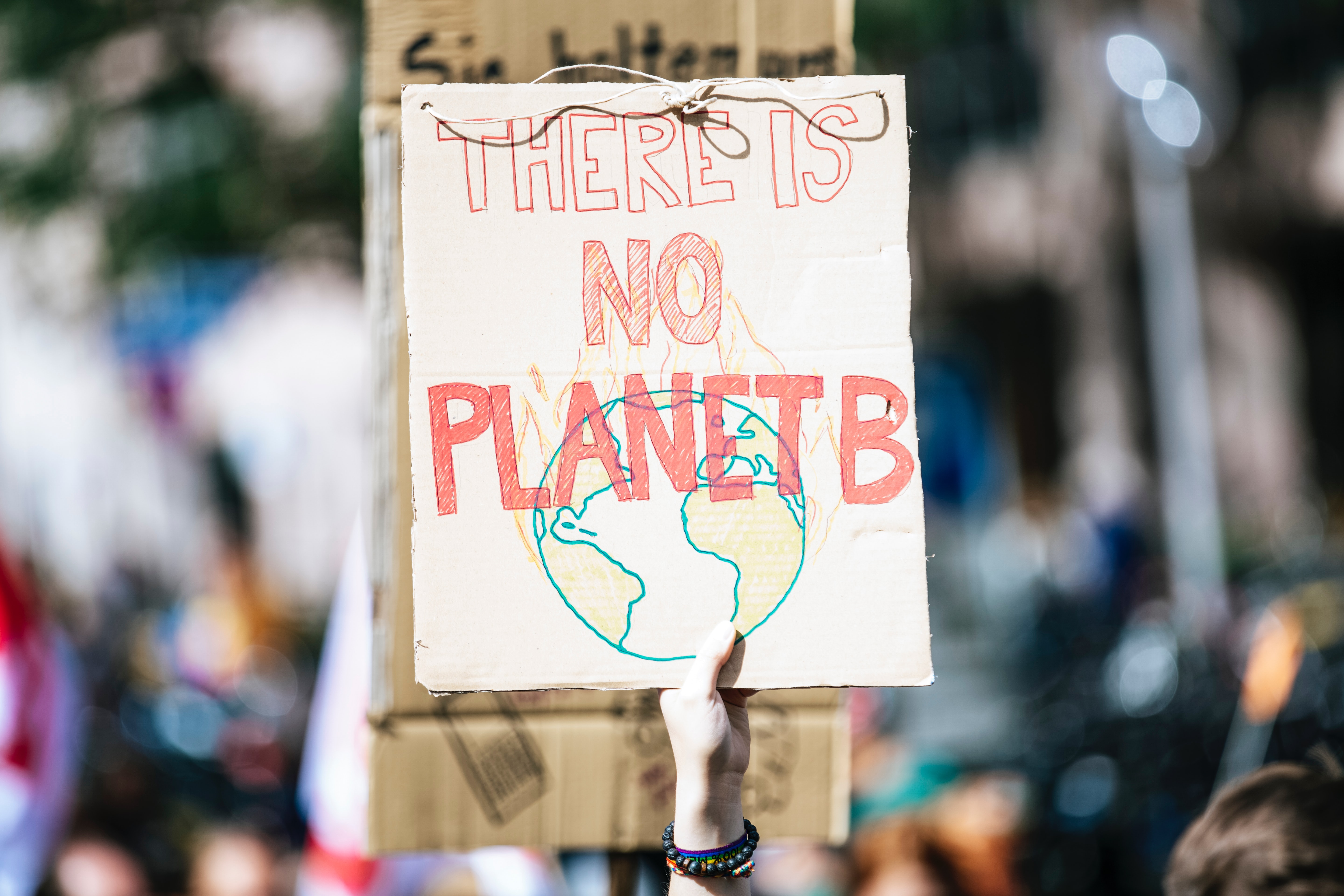![]()
I was sitting on my mom’s bed doing homework when, out of curiosity, I asked her, “Why do Christians not believe in global warming?”
In response, she said, “I don’t hear it in mainstream Christianity. I’ve just always heard it personally, an opinion from person to person, never from the pulpit or something that the Church has talked about.”
I began to wonder why it feels as through, in some sort of cultural osmosis, I had believed many Christians held the position global warming isn’t real or that any environmental efforts were purely secular. I probably gained this opinion from hearing it trickle down from one authority figure to another. My mom continued, “There was a church we used to attend that was very conservative, and they believed in dominion, that people have dominion over the earth. And, because of that, their opinion on global warming was that they didn’t believe it was real.” My suspicion was correct then: it was authority figures who were responsible for my association between Christians and anti-global warming — a viewpoint I’ve rejected in my adulthood.
Still, I wondered whether Christians truly believe this, or whether it was just the sect of Christianity in which I was raised: the ultra-conservative right. Furthermore, why would they hold so fast to that opinion? Why claim the science was fake at such lengths? Or at least, at the lengths I would see on Facebook or on Fox News?
My mother’s words lingered in my mind. “Dominion.” This word was also used by Christians in early American history to head West and force Native Americans from their homeland. This word, it seems yet again, is being used to justify actions that I’d consider morally wrong. So where did it come from?
“And God blessed them. And God said to them, ‘Be fruitful and multiply and fill the earth and subdue it, and have dominion over the fish of the sea and over the birds of the heavens and over every living thing that moves on the earth’”
(Genesis 1:28)
From this Bible passage, the words “subdue” and “dominion” seem to be the key. Certain Christians latched onto those words, the ultra-conservative, patriarchal Christians. With these words, men took charge, claiming dominion over their wives as well as the land. It would seem then that their opinions have more to do with maintaining power than with being humble stewards of God’s creation.
This concept appears in the book of Genesis itself. God created mankind with the distinct purpose of serving not only as God’s companions but also as workers and servants, helping Him care for the earth. God didn’t design this system because He can’t do it on His own but because He wanted the company. Adam, Eve and all of mankind were meant to care for the earth. It was not made for them. Rather, they were made for God and His creation. We do not own the earth, yet we’re treating it as if we bought it.
Another reason why it seems that ultra-conservative Christians discredit global warming is because, even if it were a real issue needing solutions, they don’t seem to care. They hold the position that when Jesus comes back, there’s going to be a new heaven and a new earth. Thus, there’s no consequences for what happens here in the present. I often hear fellow Christians uttering, “this is not our home,” as if to calm themselves. So, we don’t need to worry about the earth if it’s not our real home or if Jesus is coming back soon. We can destroy it all day long, God’s just going to make it all new again!
The text used to seemingly support this is Revelations 21:1: “Then I saw a new heaven and a new earth, for the first heaven and the first earth had passed away, and the sea was no more.”
So, if there’s no more sea, then it doesn’t matter whether we pollute it or if the fish we’re eating is full of plastic; if there’s a new earth, it doesn’t matter whether we deforest it and make all its animals go extinct. That seems to be the train of logic anyway.
The misuse of Scripture to support one’s own opinion is no new phenomenon. Typically, this results from a desire to defend a pre-existing opinion rather than first approaching Scripture and using its truth to guide the formation of personal opinion. If the opinion they hope to defend is that global warming isn’t real or it’s not something they should care about, naturally, they will turn to Genesis 1:28 and Revelation 21:1. Someone like myself will turn to Genesis as well but for the opposite reasons, as well as Psalm 24:1 and Matthew 21:33-46.
Jesus gave us the parable in Matthew 21:33-46 of a vineyard owner entrusting stewards to care for His garden. When the master sent servants, those stewards killed the servants, and the stewards even killed the master’s son. Sure, this parable may not be directly addressing environmental issues, especially since Jesus wasn’t talking to 21st century Christians, but I maintain it is still an example of God reminding us of our identity and responsibility as stewards.
As both followers of Jesus and believers in an all-powerful, omniscient Creator, we should respect all of creation as a gift from God Himself — yet the lands are desecrated, junk orbits our space and the oceans are full of garbage. It honestly breaks my heart, seeing what mankind has done to God’s gift for us. Surely, we as Christians have a responsibility to do better, to take better care of the earth.
Another thing which bothers me is this idea that the worse things get on this planet, the closer we are to Christ’s return. This causes an ideology lacking any action because hypothetically things will get better if they get worse. If we help the planet heal, then Jesus won’t come soon apparently. If we prevent travesties like what’s happening in Ukraine, then Jesus isn’t on his way, so on and so forth. This was the same type of logic held by many during both world wars.
The truth is, we don’t know when Jesus is returning. No man does. Furthermore, isn’t God going to be more upset with His stewards for not doing their job? It isn’t us who’s going to hasten Christ’s return. Like Gandalf, Jesus is going to return precisely when He intends to.
Additionally, wouldn’t we want to help create a better future for the next generation instead of dumping this all on them? I’ve seen many seniors roll their eyes at climate change because it’s “not their problem,” even if they’re part of the generation which began to spiral downward in ozone decay.
And finally, even if you don’t believe in the science behind global warming and climate change, the fact remains: the earth is God’s creation, and we ought to care for it. No matter where you land on the issue which has somehow made itself politically divisive, we all should care about the earth both ourselves and future generations will call home. It breaks my heart that somehow, we can’t all agree on this simple, biblical truth.
Photo courtesy of Markus Spiske at Unsplash





